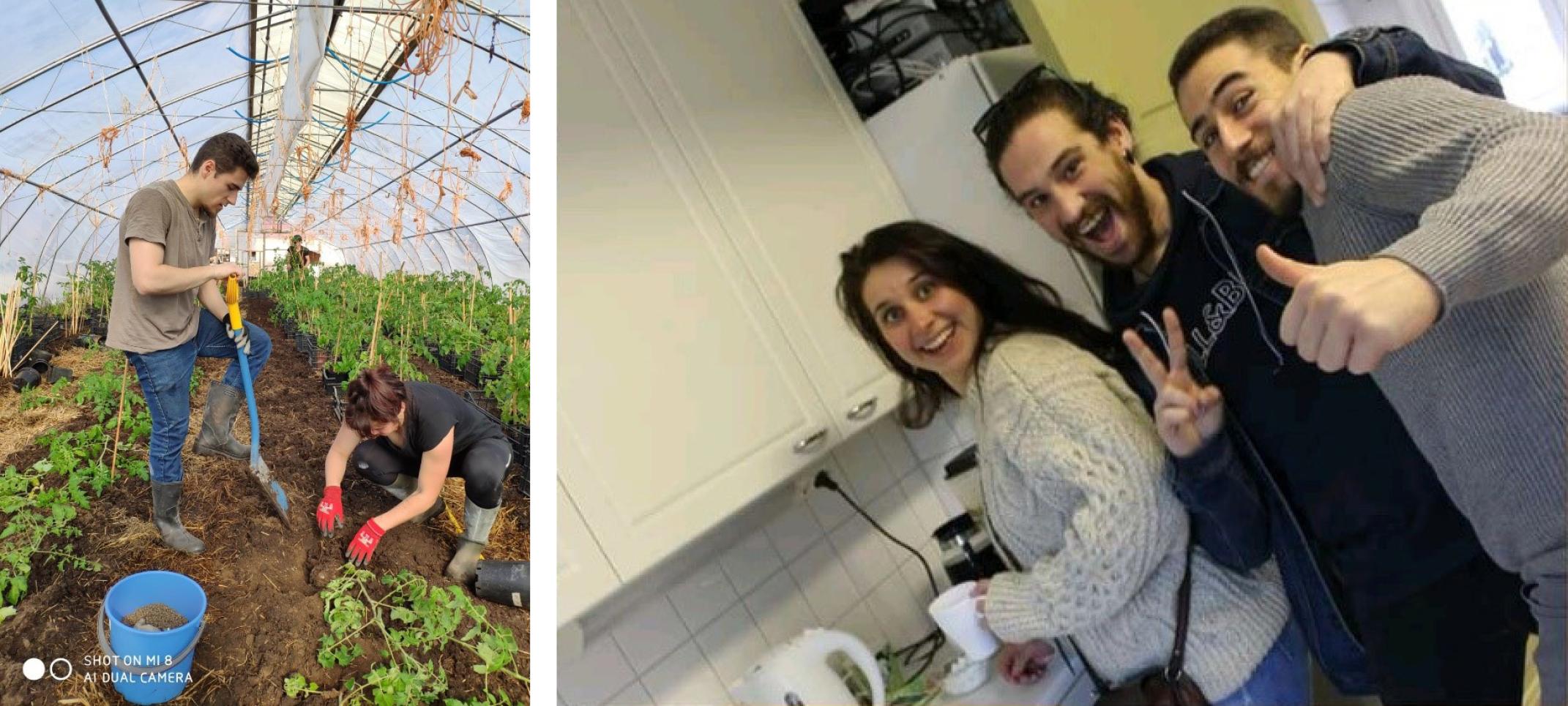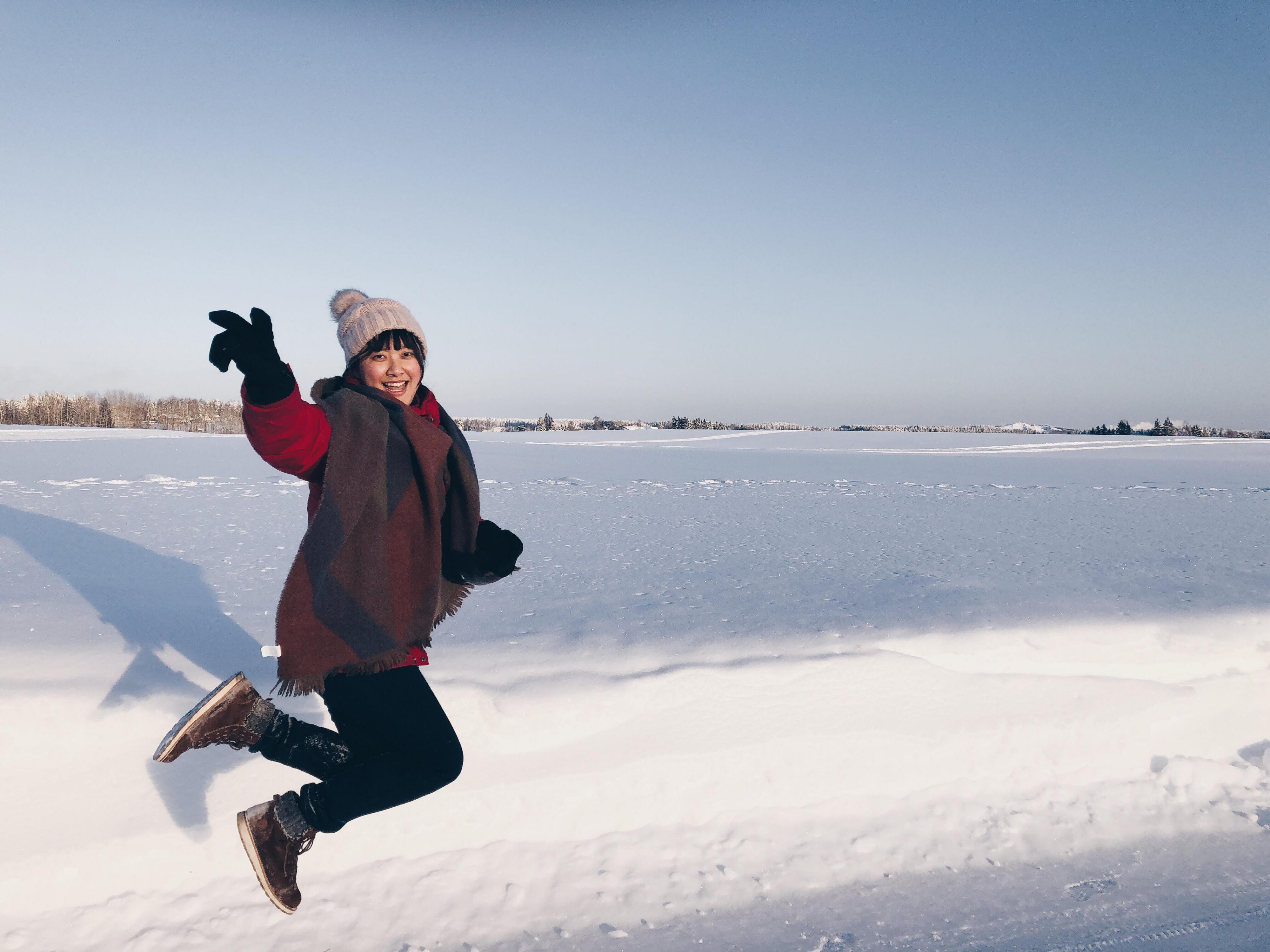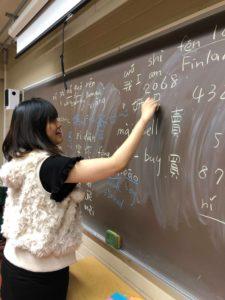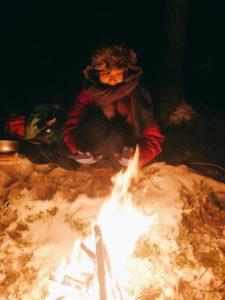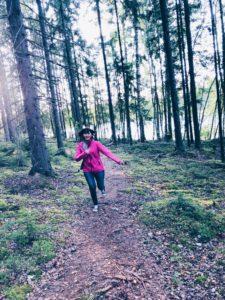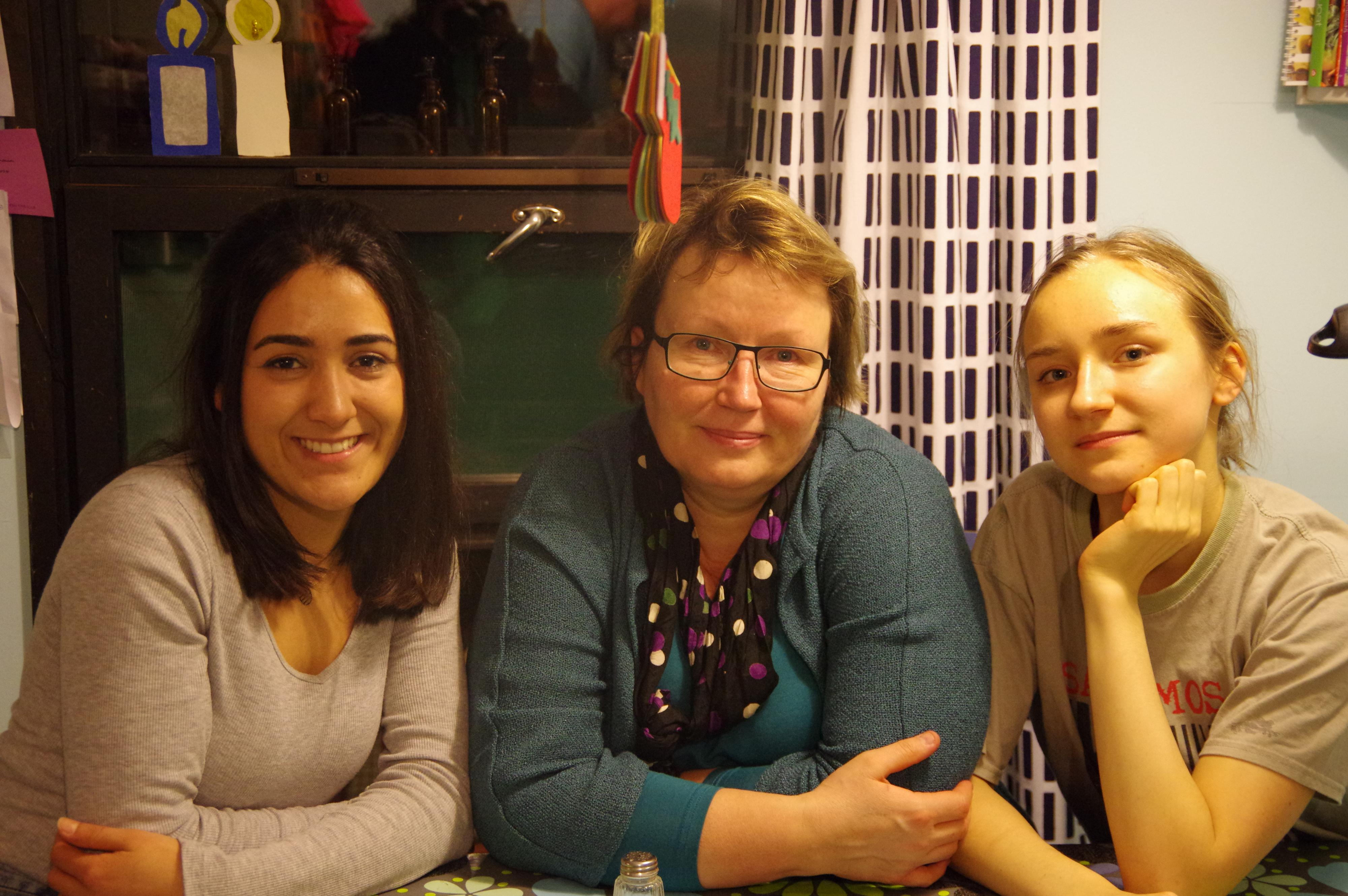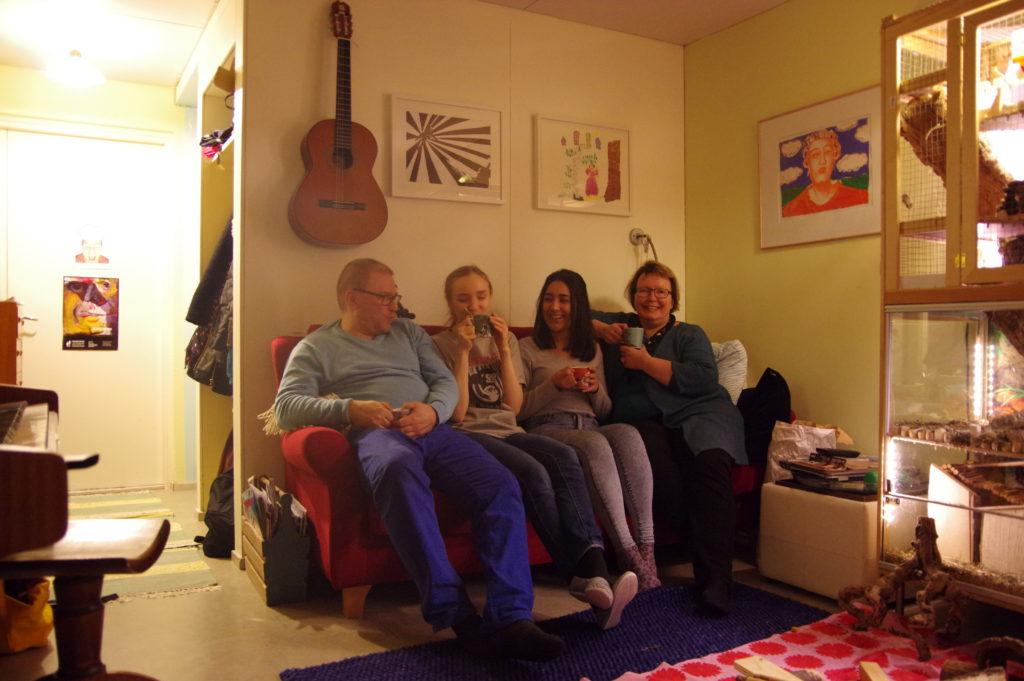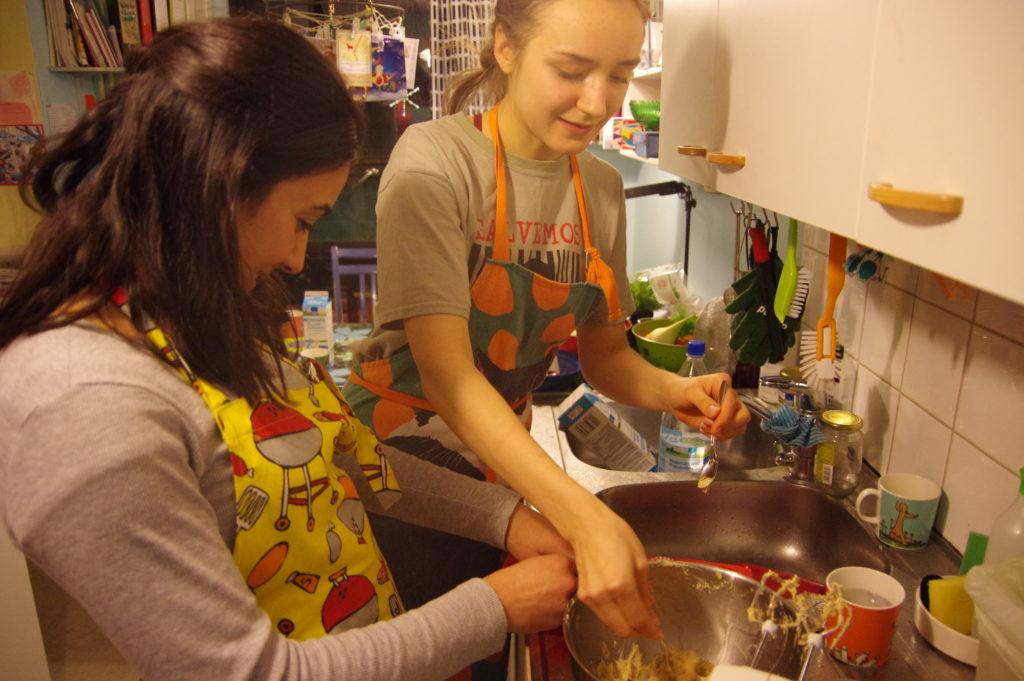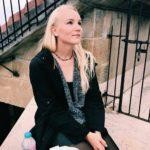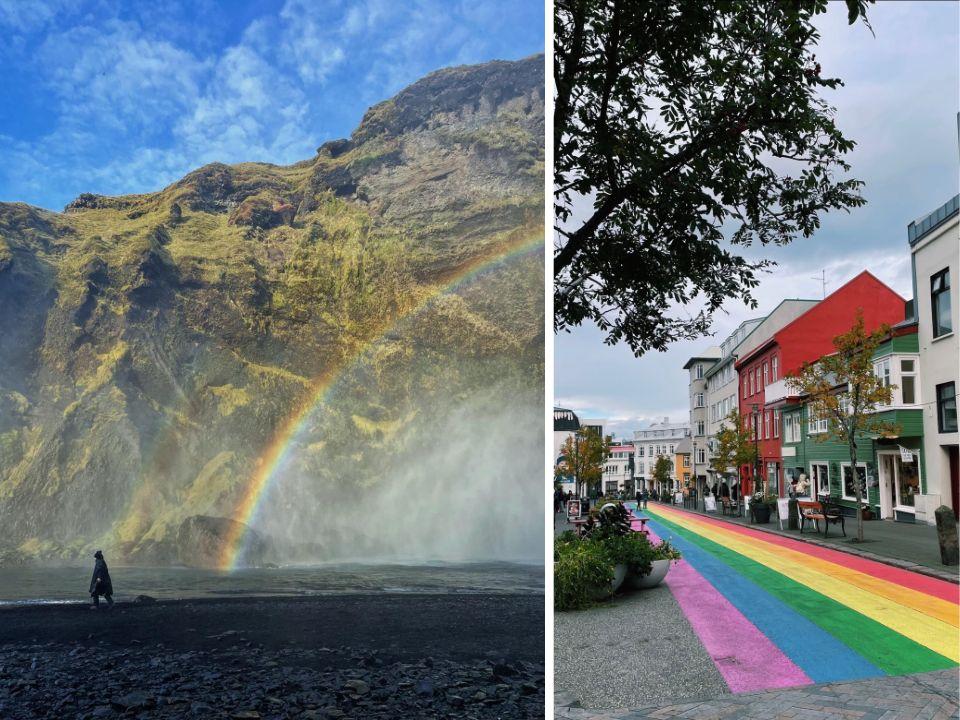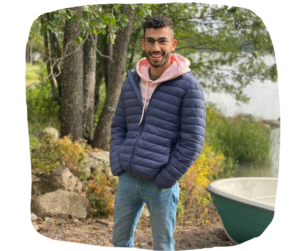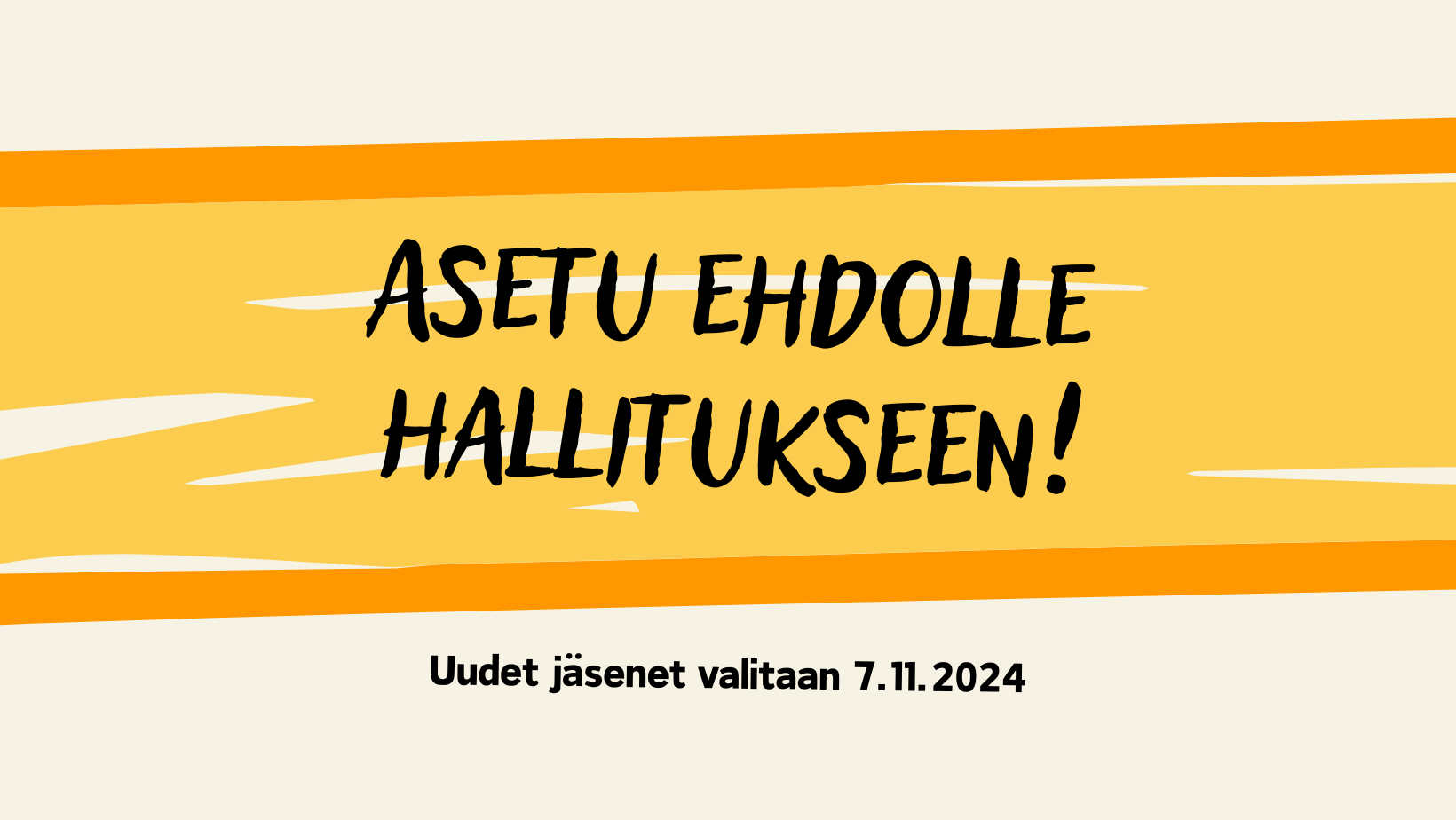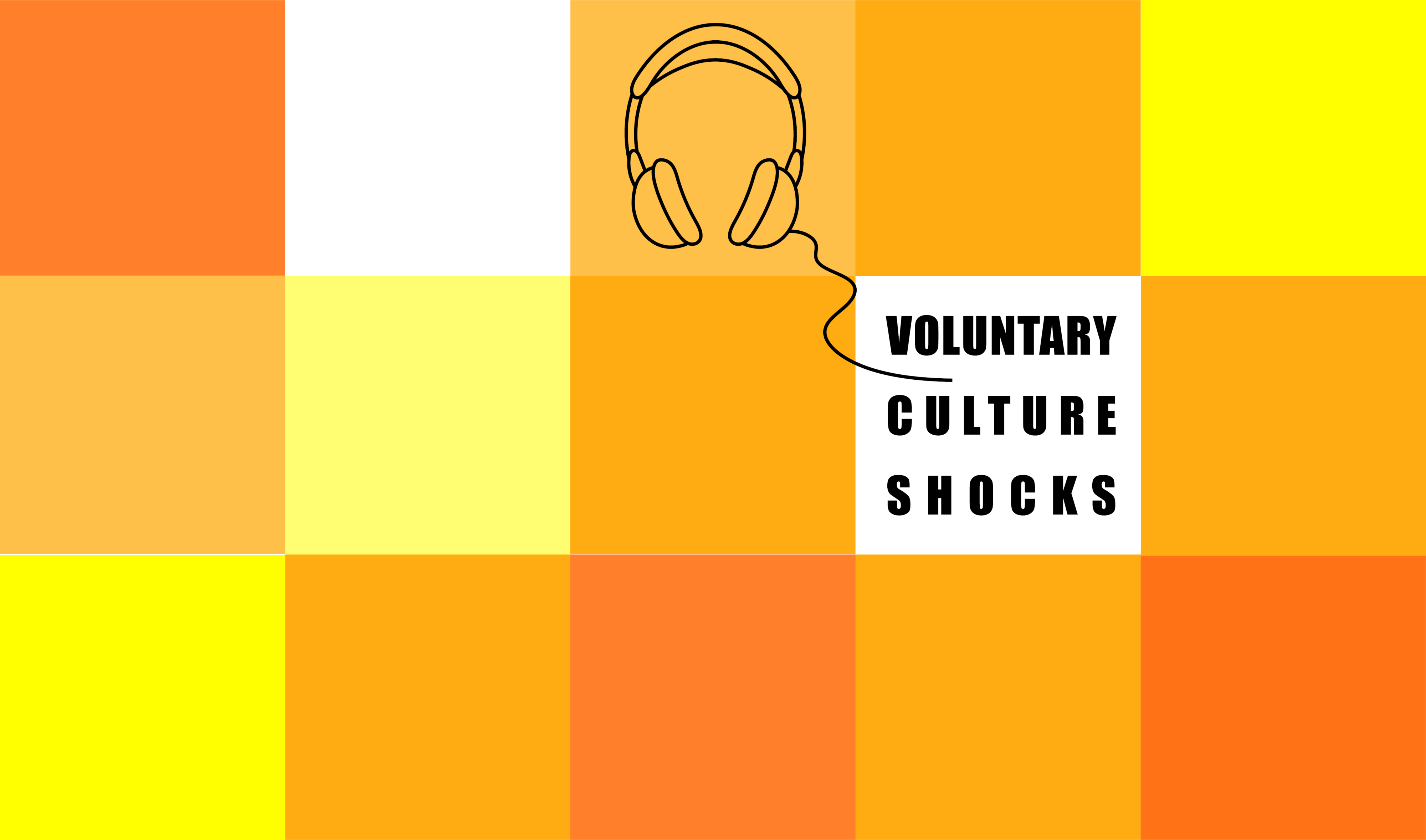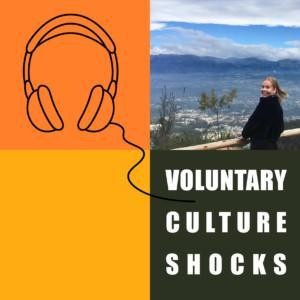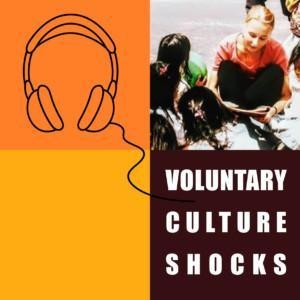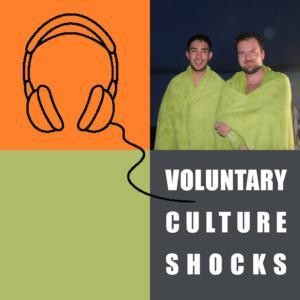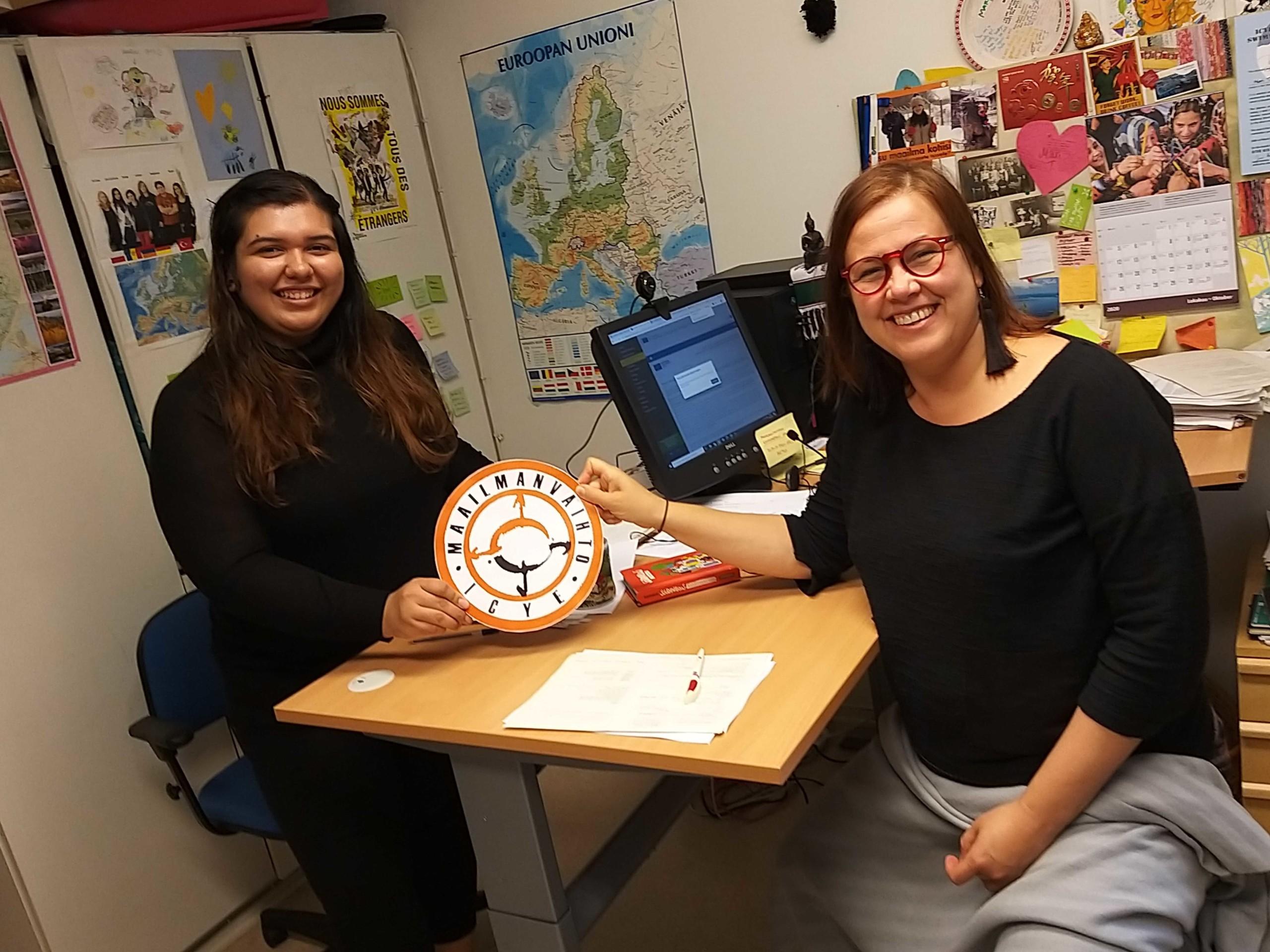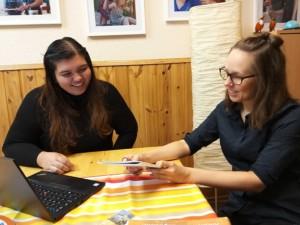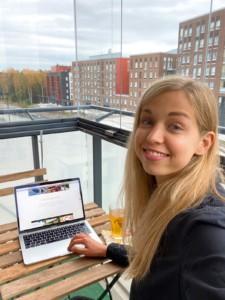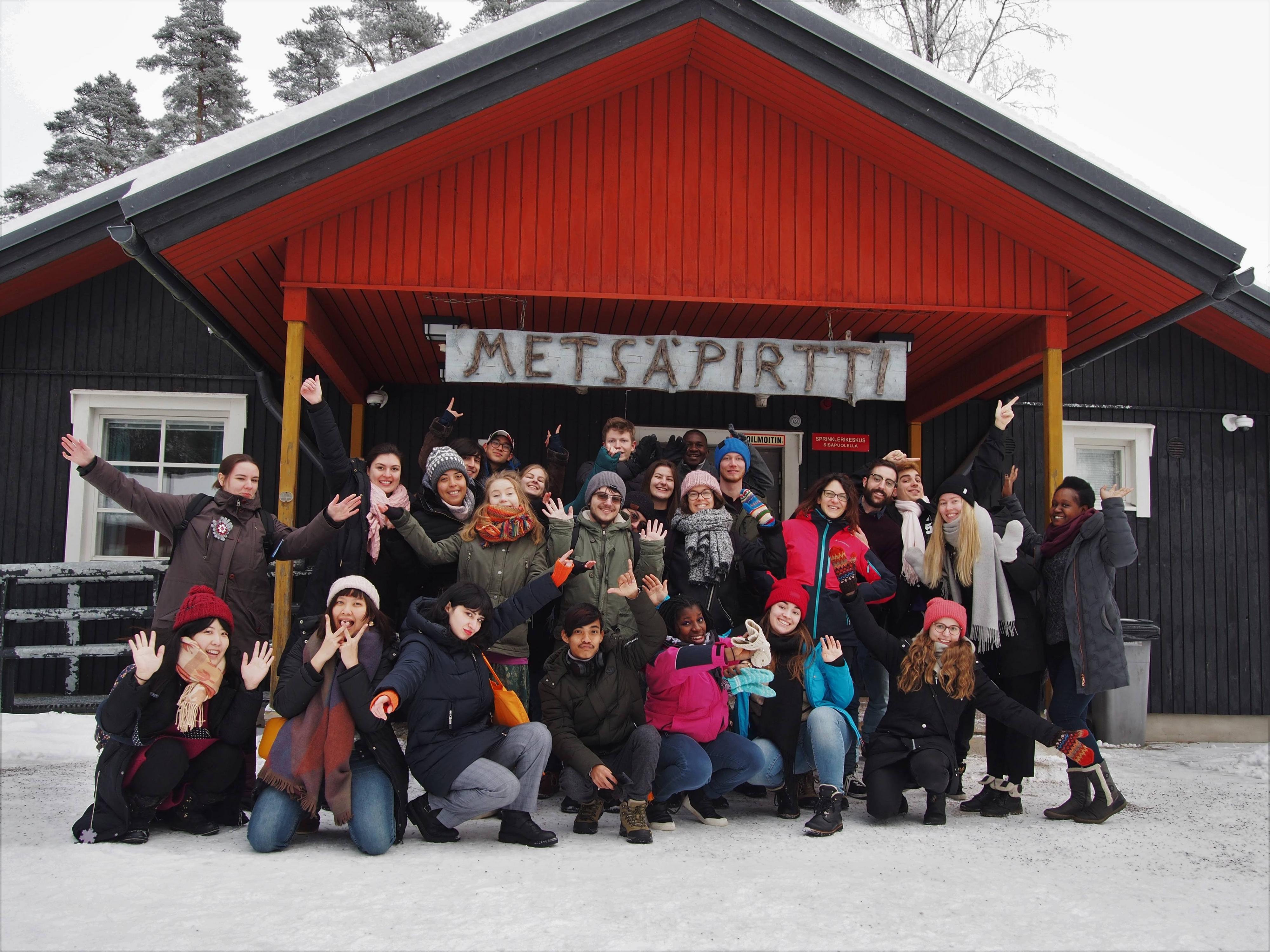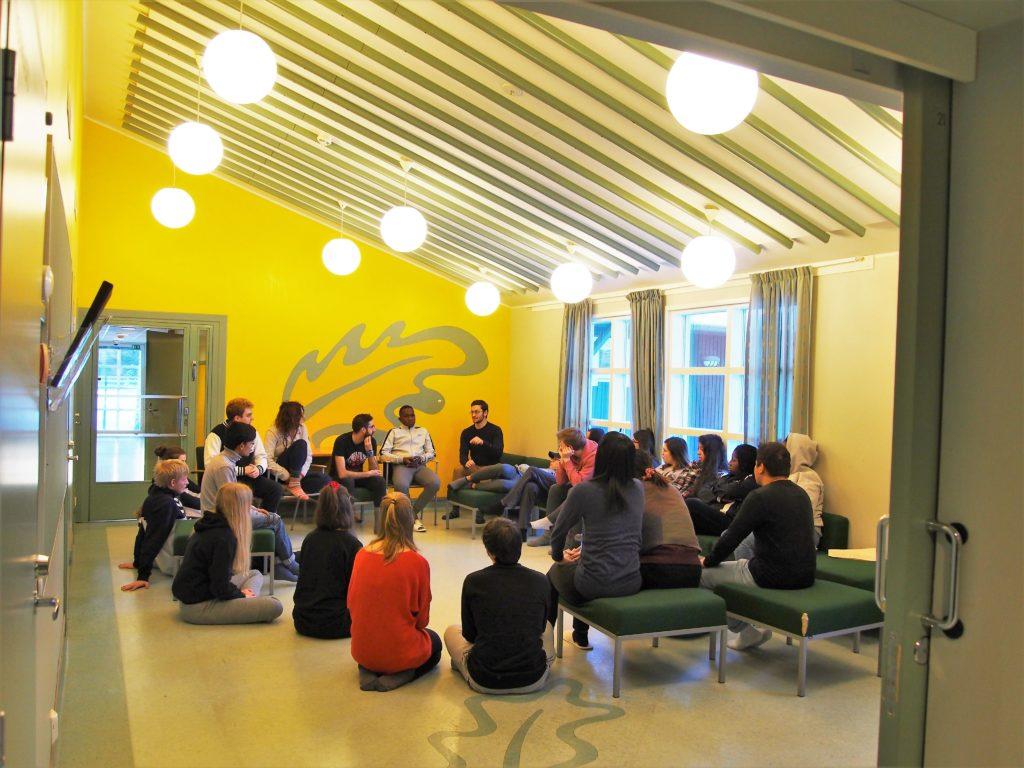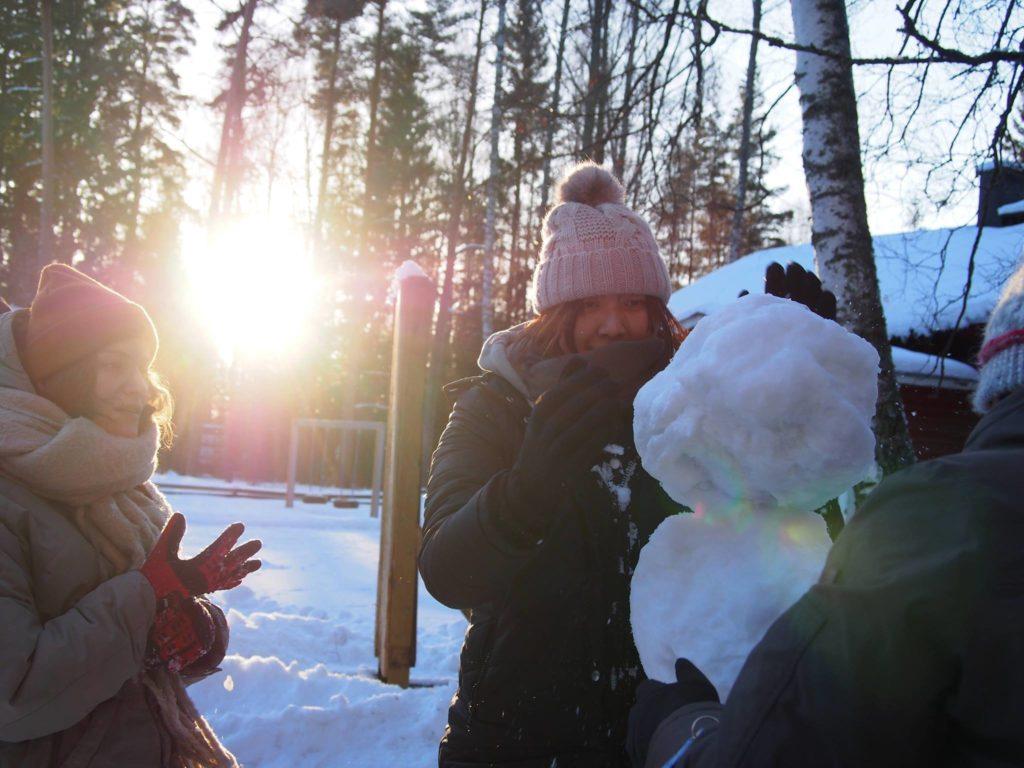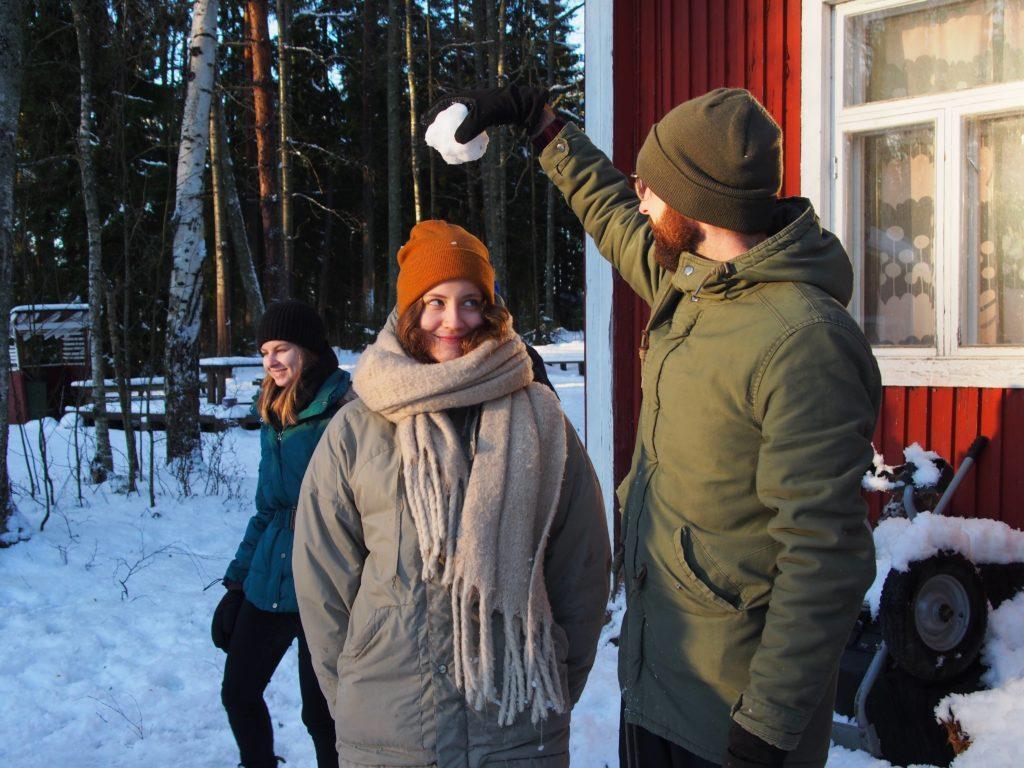A French, a Portuguese (Madeiran, to be precise) and a Spanish join a volunteering project in an organic farm in Suonenjoki, Finland. This is the beginning of our experience, full of random, unexpected and funny moments.
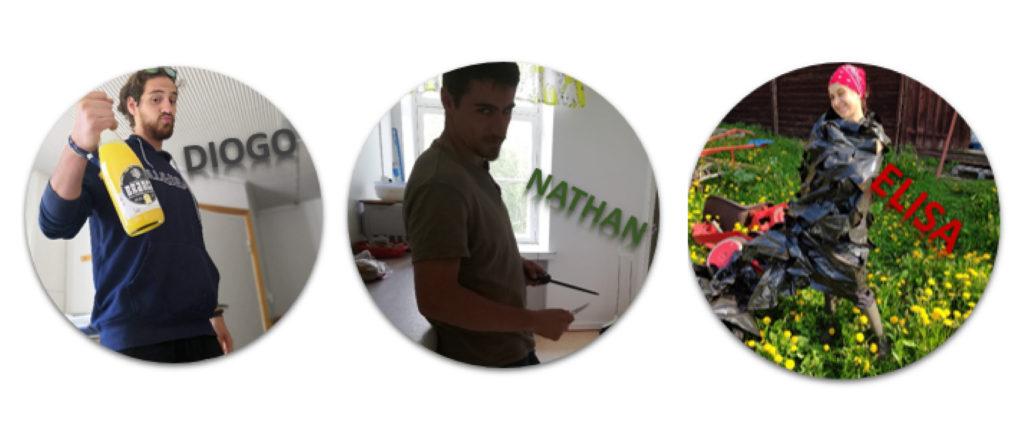
We are Diogo (the Madeiran), Nathan (the French) and Elisa (the Spanish). The place, Vanhamäki Activity Center, not easy to describe, better come and see yourself.
We all came to Finland with similar expectations/purposes. We wanted to discover the Finnish nature and try something completely different to what we were used to, and the project offered by Vanhamäki was suitable for that. In addition, we aimed to learn from a different culture, improve our English skills and of course, meet new faces.
“I was especially interested in organic farming and life in the countryside. I also wanted a gap year after university to settle ideas and clear my mind.” Elisa
“I was bored of my previous work and I wanted something new with outdoor work. This project was a great way to fill these goals and on top of that I’m really interested in environment so I it was a good occasion to learn about organic farming.” Nathan
“I wanted something different than my previous usual lifestyle I had back in my country. I wanted something completely the opposite, meet new people, meet a new culture and new traditions! No regrets!” Diogo
The project was mainly focused on organic farming and transformation of raw products that were collected during summer. Three different periods can be clearly distinguished regarding our work activities. The only thing we did every single day from the beginning of the project until the end was…. peeling potatoes and taking them to the restaurant kitchen!
Spring
In early spring, snow had not melted yet, so outdoor work was not possible. We mainly spent our worktime in the kitchen, learning how to make jam or juice with organic products Vanhamäki had stored form previous years. When the snow started to melt and the days became warmer, we began to take part in some farming activities. Everything had to be planted, summer was coming! We cleaned and prepared the ground in the main greenhouses and we started to grow the plants in the glasshouse, which would be transported to the bigger greenhouses when the conditions were appropriate.
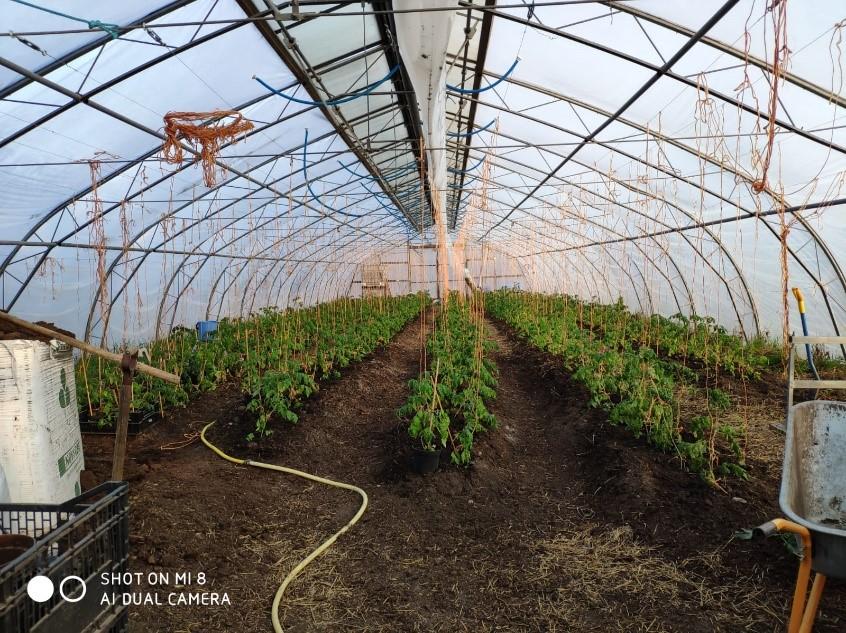
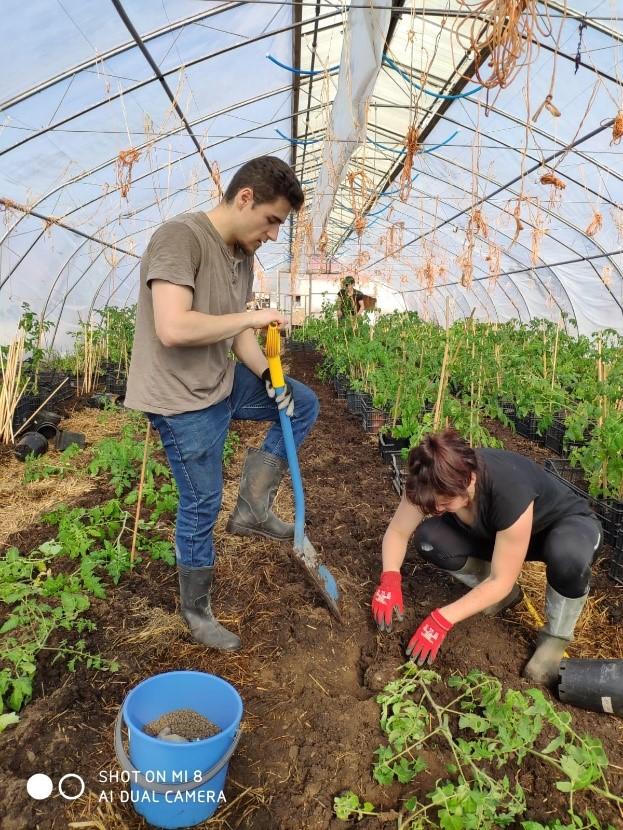
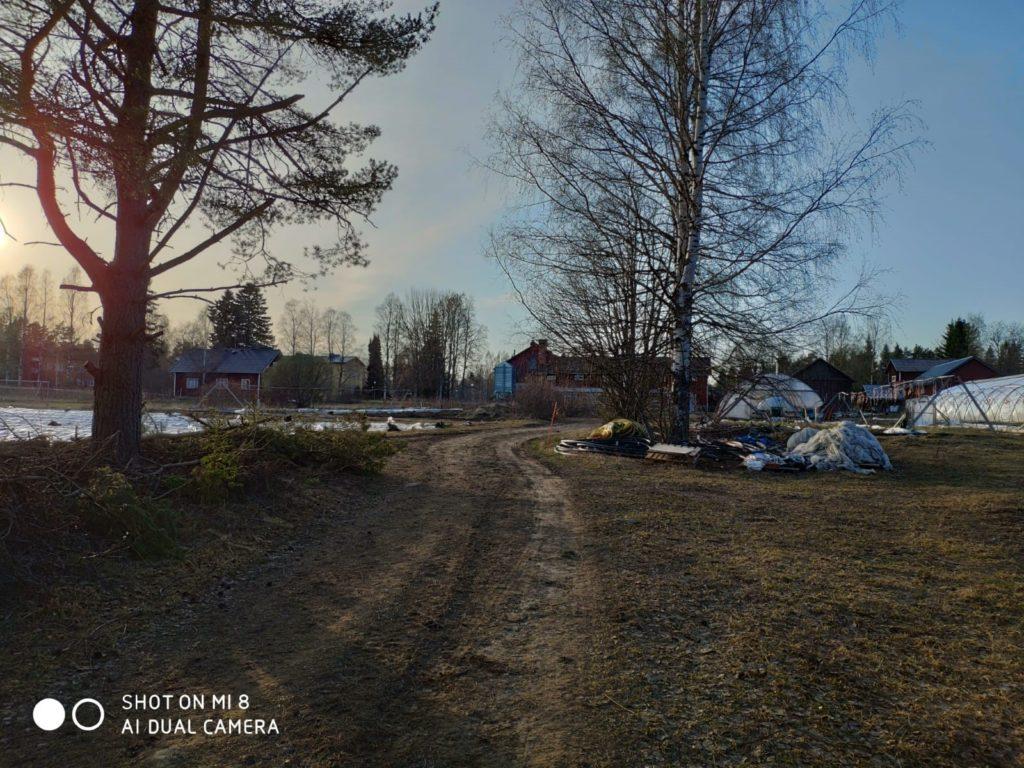
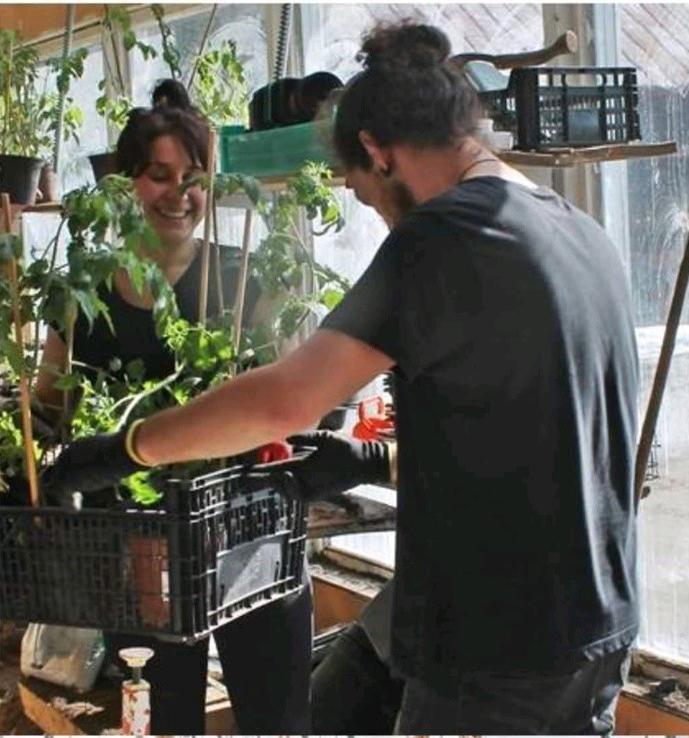
Summer
Summer came! Everything blooming, life, light, sun and… mosquitoes. We began to work outside, planting and taking care of the crops. Some weeks later, harvest started! STRAWBERRIES, hundreds of kilos, clearly the best we have ever tried. Raspberries, lingonberries, black current, zucchini, beans, herbs, cucumbers and tomatoes, tones of tomatoes. Summertime was hectic, but for sure it was a period for learning, practical skills but also teamwork. We had the opportunity to be immersed in a multicultural background when two international volunteering camps joined us for two weeks each. Gradually, days started to get shorter, but we still had many vegetables to pick and a new apparently endless job: apple juice. We have spent weeks processing hundreds of kilos of apples to turn them into delicious juice!
“Summer was for me like a dream here. I enjoyed so much all the moments we had during our free time. The lake at night with the colours of the sunset reflecting on it, it is a memory I’ll never forget. During this period, all the surroundings were green, everything was growing, even the vegetables and the berries were different (and better) from what I’m used to.” Nathan
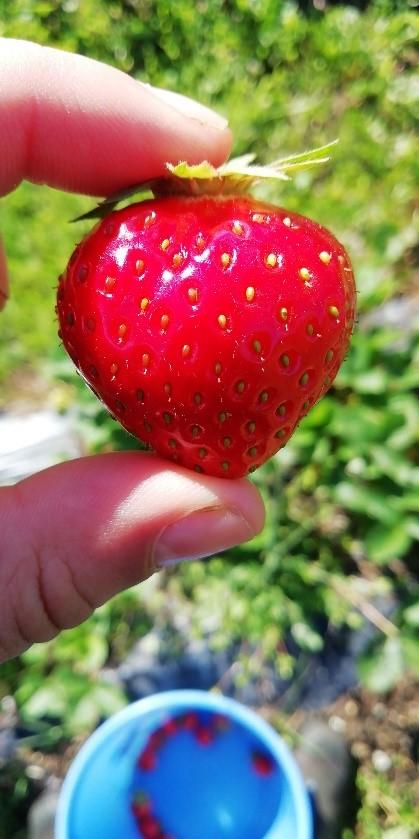
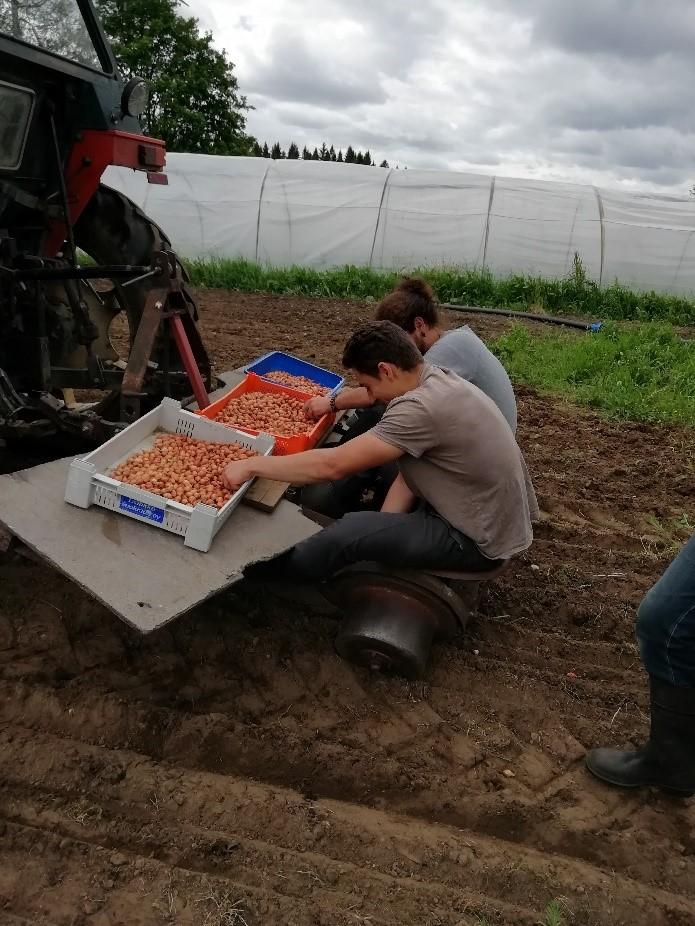
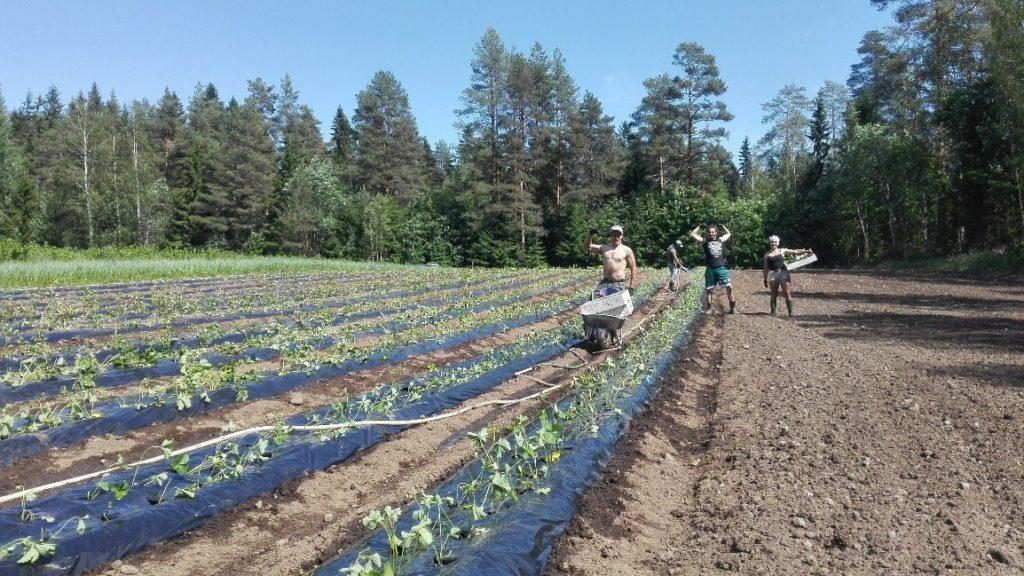
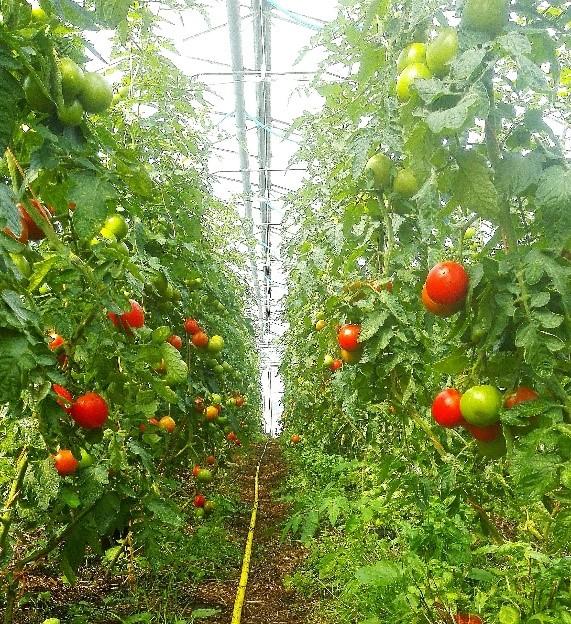
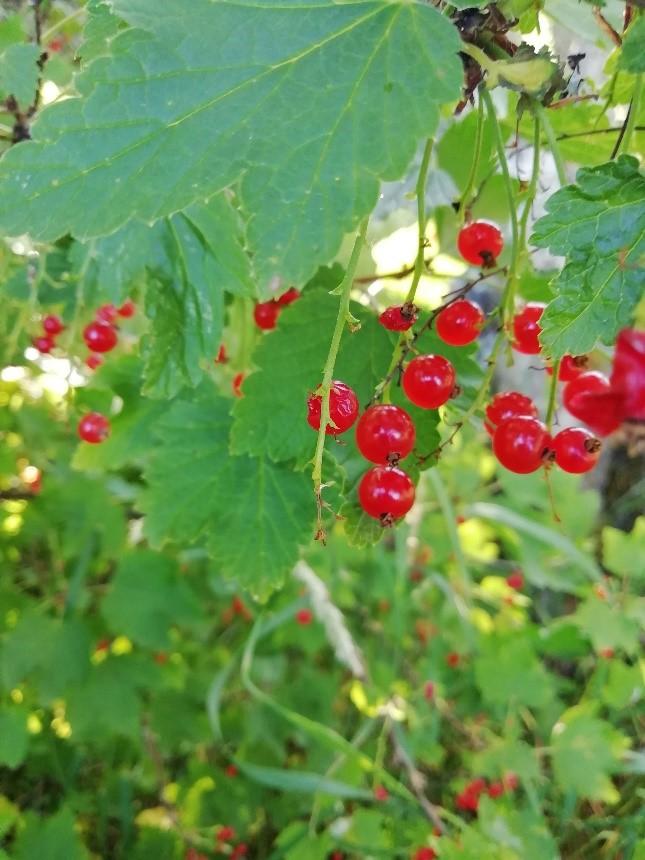
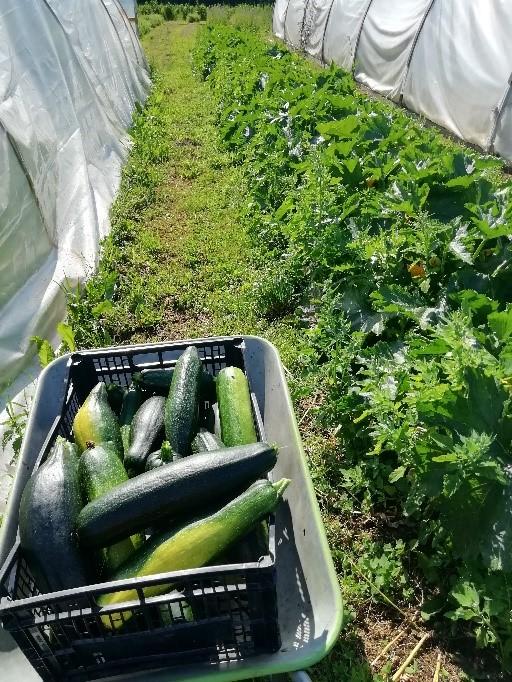
Autumn
The frenetic summer past, and we started to feel the autumn approaching. Last harvest, no crops anymore. We were a bit uncertain about what we would do during October and November, but then, ideas of our own project started to come up! We reorganized the gym and the workshop with the objective of making them more practical. We also started a conversation exchange programme in a café called Kahvila Kinuskihuone, in Suonenjoki town centre. It was a fantastic opportunity to meet local people, share opinions and learn a bit more about Finland! But our contact with the local community didn’t stop there, we also started to visit some schools in Suonenjoki area, where we presented our countries and had little chats with students and teachers. These activities were a breath of fresh air and a fantastic complement for our project.
“The Syke Talo is a building used to host all kind of events but also the gym. It has an interesting potential that wasn’t properly used in my opinion. Since I don’t know how they use it for events I couldn’t think much on how to improve this part. But I use personally the gym almost every day so I had quiet a few ideas of what could be improved. I proposed them few ideas and since they liked it, we started to organize that. I kept improving it bit by bit and I submitted them other ideas to finish it. This was a new and interesting project for us.” Nathan
“Finnish autumn really surprised me, the intensity and beauty of the colours is wonderful.” Elisa
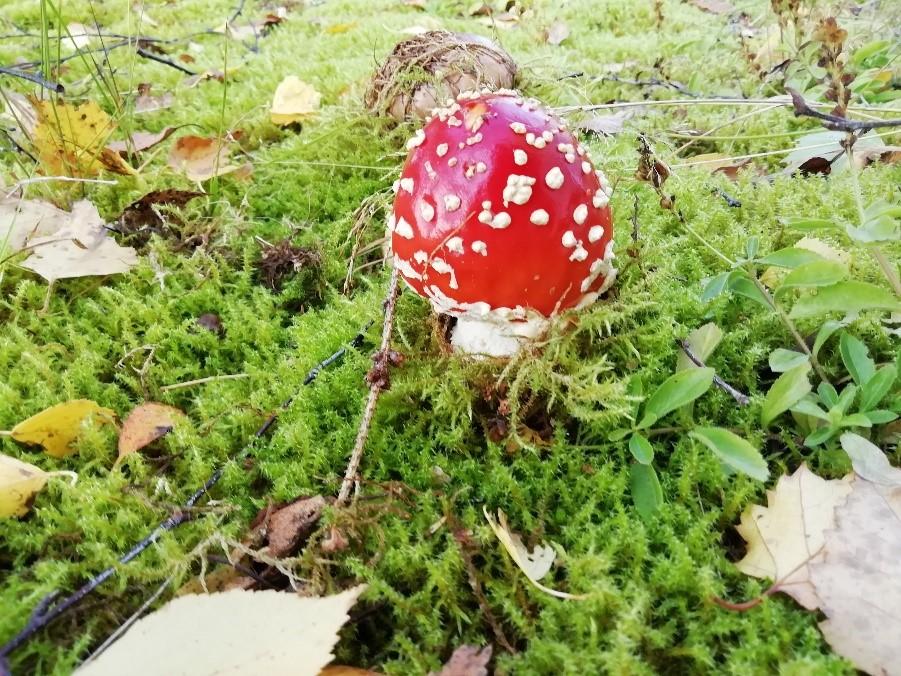
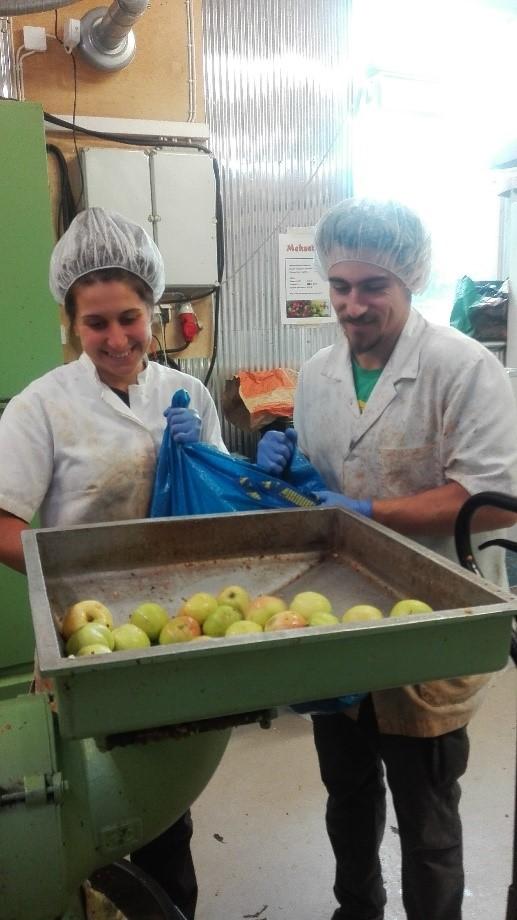
Free time & thoughts on the experience
Free time in Vanhamäki was quiet and relaxed, a moment to enjoy outdoor activities, practice sport and have some time for ourselves. During summer, the endless light made us want to be outside. Basically, we could describe our summer in Vanhamäki with four words: lake, sauna, barbecue and… mosquitoes. It was a period to enjoy the sun, swim and fish in the lake, a wonderful place to refresh and have fun. As the Finnish weather is so unpredictable, we also had some alternatives for indoor leisure activities. We spent hours in the gym and in the workshop. But we were not hidden in Vanhamäki, from time to time we used to go to Suonenjoki, have some drinks together and play billiards. And not only that, we also found time to travel! We managed to meet other volunteers, visit different places in Finland and some nearby countries.
“One of the best things I have done here was joining Kuopio Rugby Club. It allowed me to keep practising a sport that I love and to meet great Finnish people, fact that has really helped me in my adaptation to a new country.”
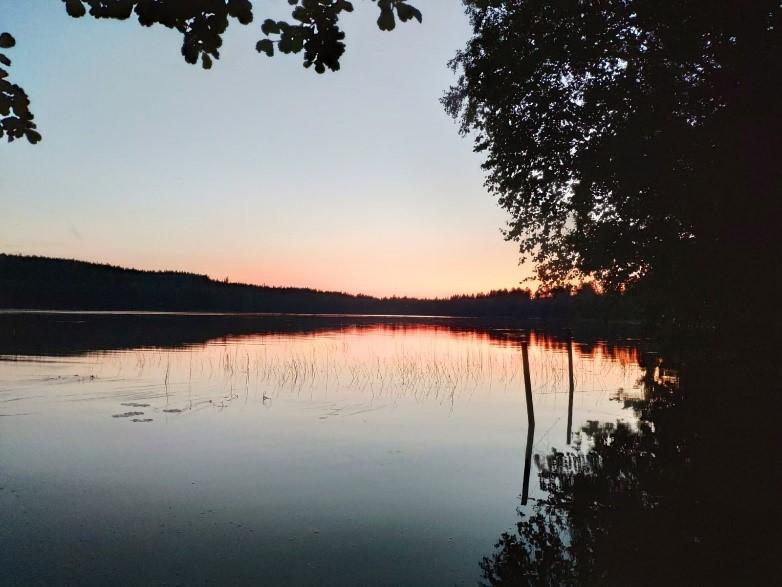
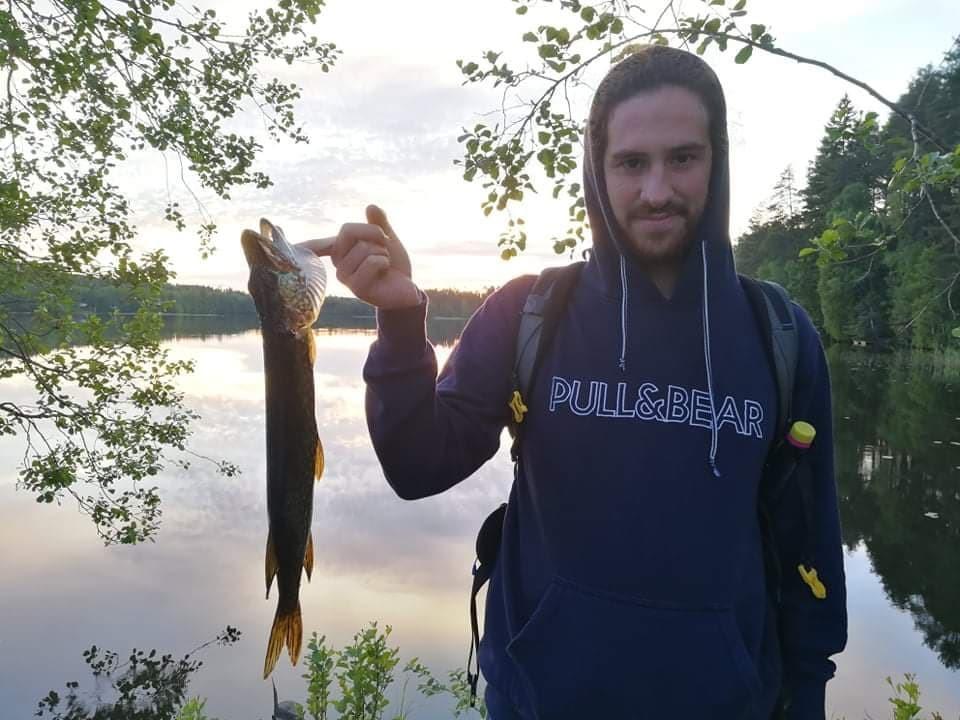
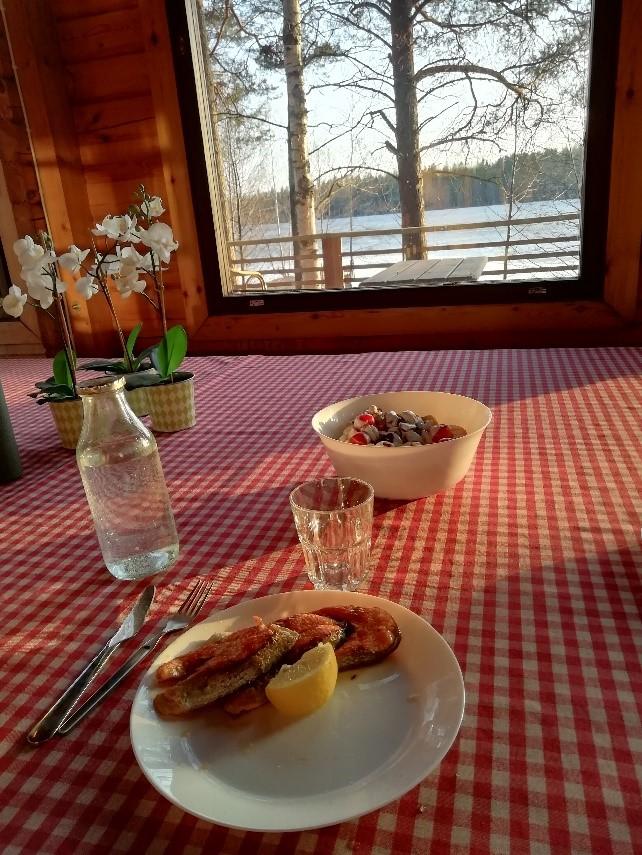
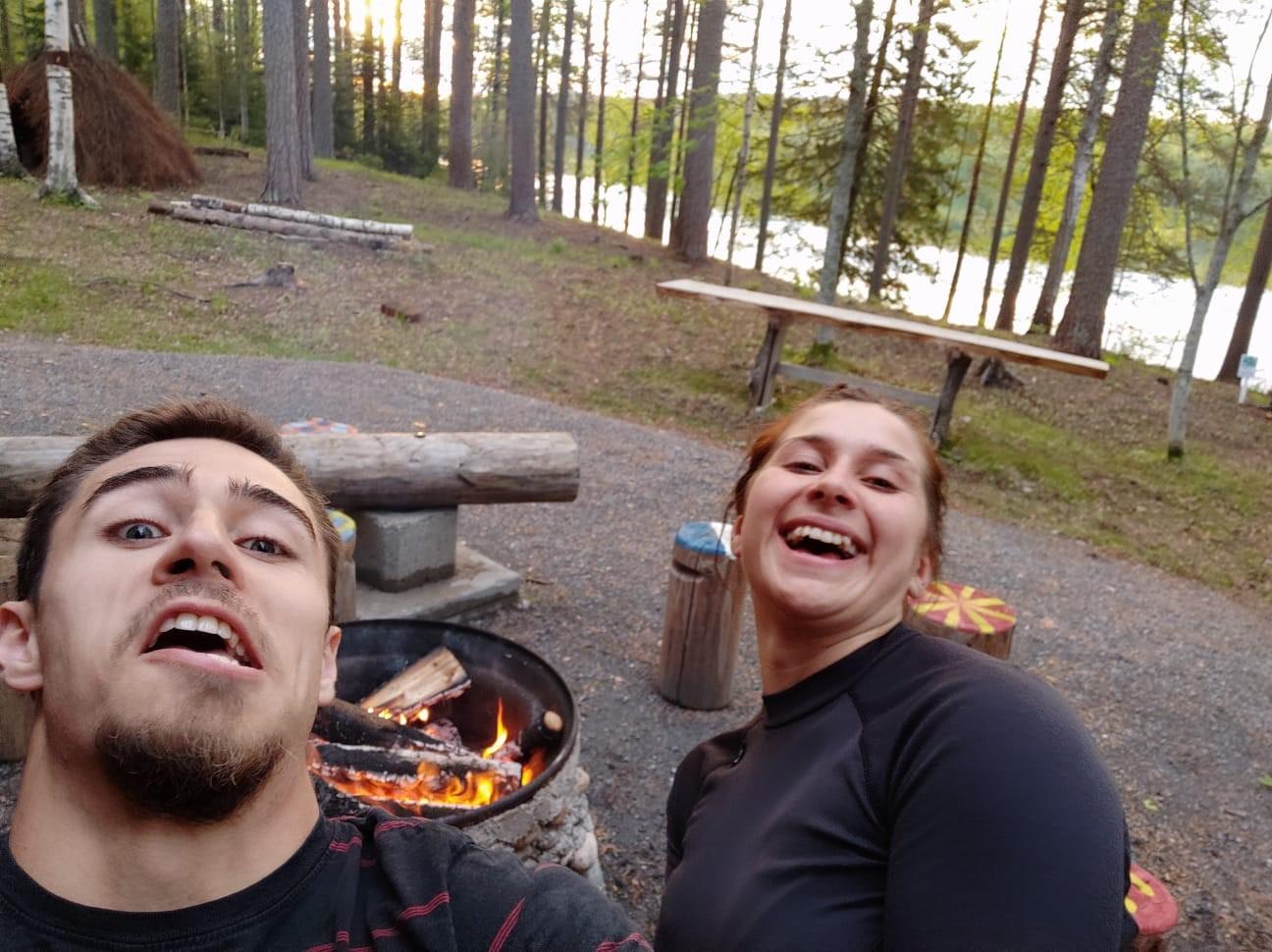
Volunteering has been a period of intense change in our lives. New country, new people, new climate… Definitely, a moment to discover, not only our surroundings, but also ourselves. A great part of the story always depends on who is telling it, the same happens with volunteering experience. The excitement, worry, impatience and curiosity that everybody feels in the beginning can change in different ways depending on the person. We would describe our experience as very positive and enriching. However, when we talked about how we had felt during these months, words like “lost”, “unconfident”, “homesick”, “disappointment”, “bored” or “depressive” also appeared. It is a reality, not everything was always wonderful, but still it was worth it. Going through different situations, positive, negative, funny, challenging… that’s part of the experience and part of the learning process.
We consider ourselves very lucky. We had a great team since the first moment, life together was easy, comfortable and extremely funny.
“It always depends on the people that you meet.” Diogo
“Friends are the best thing I get from this experience.” Elisa
“Finland, I’ll be back!” Nathan
Diogo, Elisa and Nathan participated in the Eramus+ Volunteering – which has changed into European Solidarity Corps (ESC) Volunteering. Maailmanvaihto receives ESC volunteers for periods of 6–12 months. Would you be interested in participating? Read more and apply!

